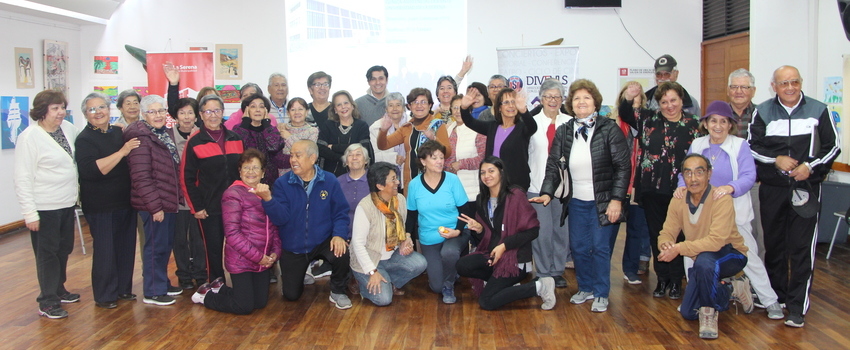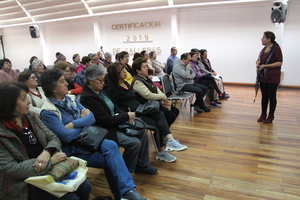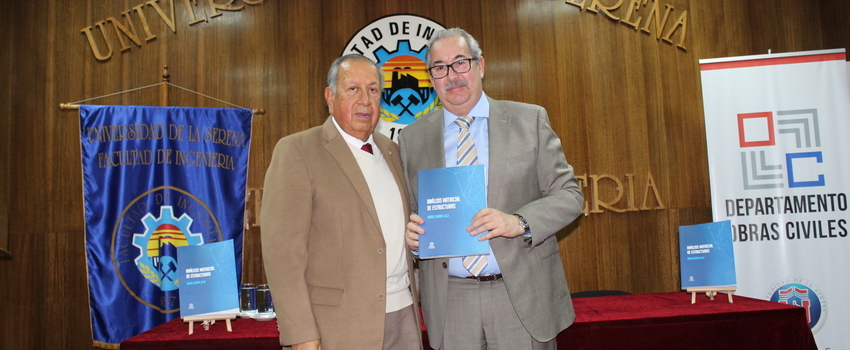
This book from the Universidad de La Serena Publishing House corresponds to a methodical compilation of documents from the subjects Structural Analysis and Structural Analysis II of the Civil Engineering degree, which the academic taught for 35 years at the ULS.
With great emotion and with the presence of authorities, directors, academics, graduates and students of the institution and special guests, the book “Matrix Analysis of Structures” was launched, by Dr. Ing. Mario Durán Lillo, former Dean of the Faculty of Engineering of the house of studies. The teacher was teaching the Structural Analysis I and II subjects of the Civil Engineering degree for more than 35 years, whose notes he decided to capture in a book and hand it over as a great legacy.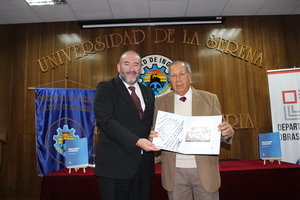
In 1968, Mario Durán trained at the University of Chile as a student of Professor Tomás Guendelman in the subject of Computational Analysis of Structures, years in which the use of the computer for Chile was a utopia. Upon returning in the 80s, he met Guendelman again, with whom he forged a great friendship and worked on various research projects and title memoirs.
Engineer Tomás Guendelman, Doctor Honoris Causa of the ULS, was present at the launch of the book, indicating that “this is a moment that can be compared to the celebration of the achievements of our children, since, in intellectual terms, children "They are the ones who learned from us and who are capable of surpassing us, and this happened in this case."
Regarding the publication of the ULS Editorial, Mario Durán, pointed out that “at first the analyzes and documents were written manually and I myself made photocopies and gave them to the students, and then they began to write. Another colleague made the drawings and the formulas that little by little we gave shape to, but for this I had to have time, and now in January I finished my work as Dean and the launch of the book coincides with my farewell and this legacy that I leave for the University and for the engineers.”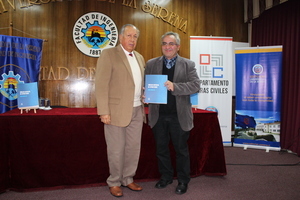
Meanwhile, the Dean of the Faculty of Engineering, Mauricio Godoy, pointed out that “we are very happy and grateful for the work that Mario Durán has done and the great contribution and legacy that he is leaving today not only to the region, but also to the country. with his book Matrix Analysis of Structures. This book has great value and we treasure it with great pride at our University.”
Moira Rojas, fifth year student of Civil Engineering, pointed out that “Don Mario has been very important to me, I am an assistant in his fields. He has had important achievements in Chile such as participating in the seismic standard in the country, and has worked in many disciplines of civil engineering; His classes were very interesting, he told us that he calculated a satellite, for example, he taught us a lot from his experience and always with great humility.”
Written by María José Barraza, FIULS 2030 Project

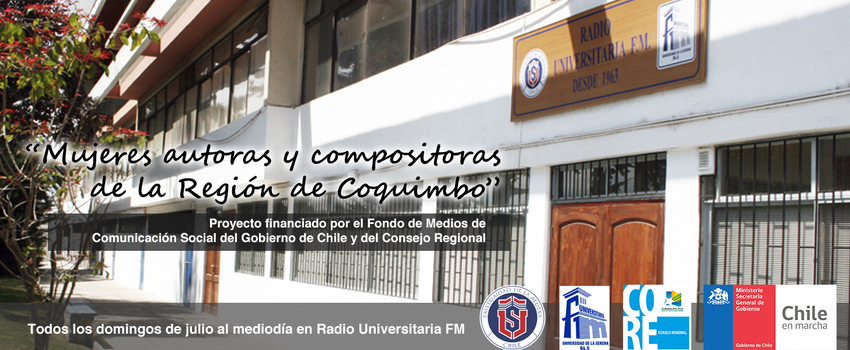
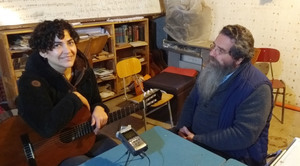
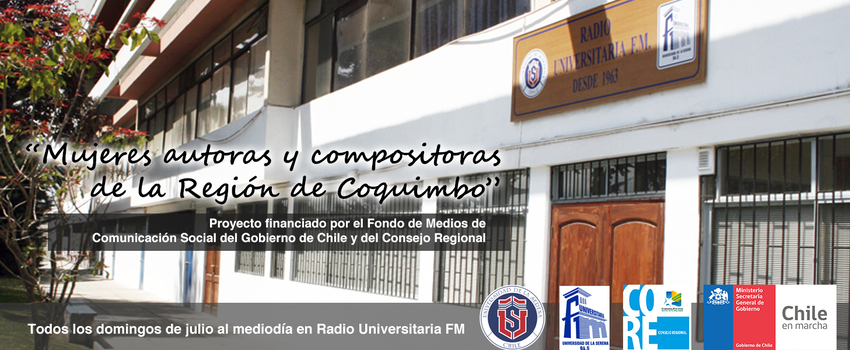

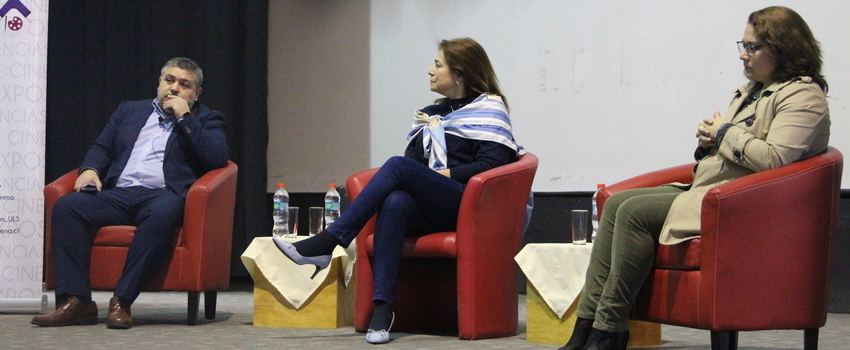
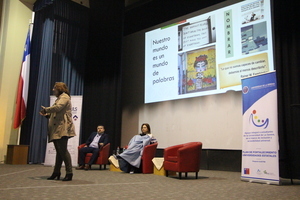 The person in charge of starting was the actress Esperanza Silva, president of the Chilean Actors Corporation, who referred to the awareness that culture and art are part of our basic rights, and how the group created its first project carried out together with SENADIS: the Accessible Digital Book “The Creation”, which contains poems by Chilean authors such as Pablo Neruda or Vicente Huidobro and original stories presented with illustrations, sign language, narrations, description of the illustrations, text reading, music and effects sonorous
The person in charge of starting was the actress Esperanza Silva, president of the Chilean Actors Corporation, who referred to the awareness that culture and art are part of our basic rights, and how the group created its first project carried out together with SENADIS: the Accessible Digital Book “The Creation”, which contains poems by Chilean authors such as Pablo Neruda or Vicente Huidobro and original stories presented with illustrations, sign language, narrations, description of the illustrations, text reading, music and effects sonorous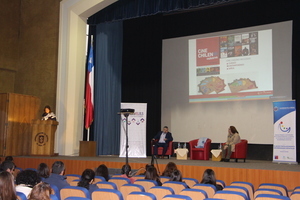 In this panel, the academic from the University of La Serena, Arlyn Orellana, spoke, highlighting that the world is a world of words, expressed: “how we configure individual and collective thinking depends on our way of speaking, how we find our place. in society and how we define it, we name it.”
In this panel, the academic from the University of La Serena, Arlyn Orellana, spoke, highlighting that the world is a world of words, expressed: “how we configure individual and collective thinking depends on our way of speaking, how we find our place. in society and how we define it, we name it.”